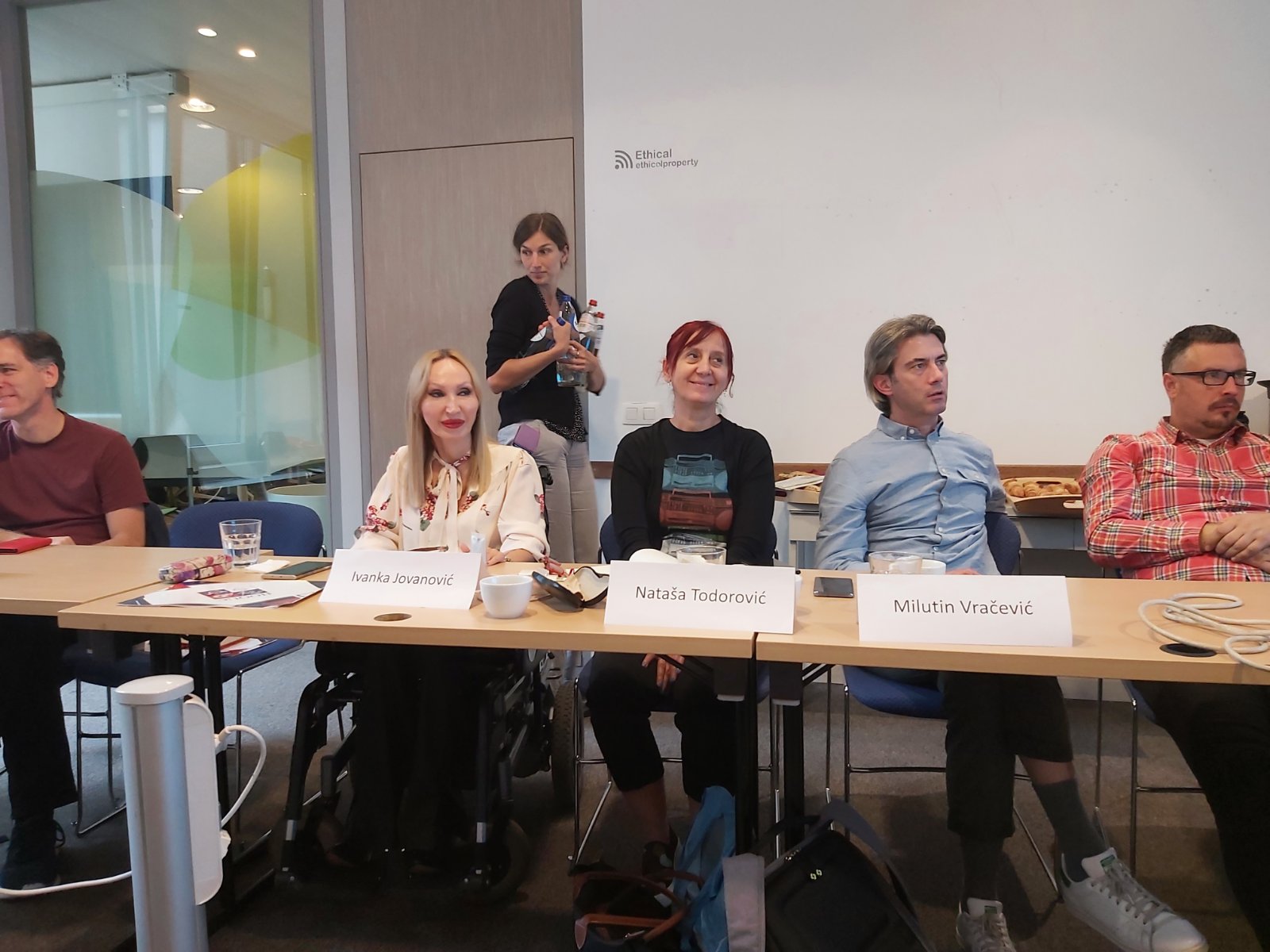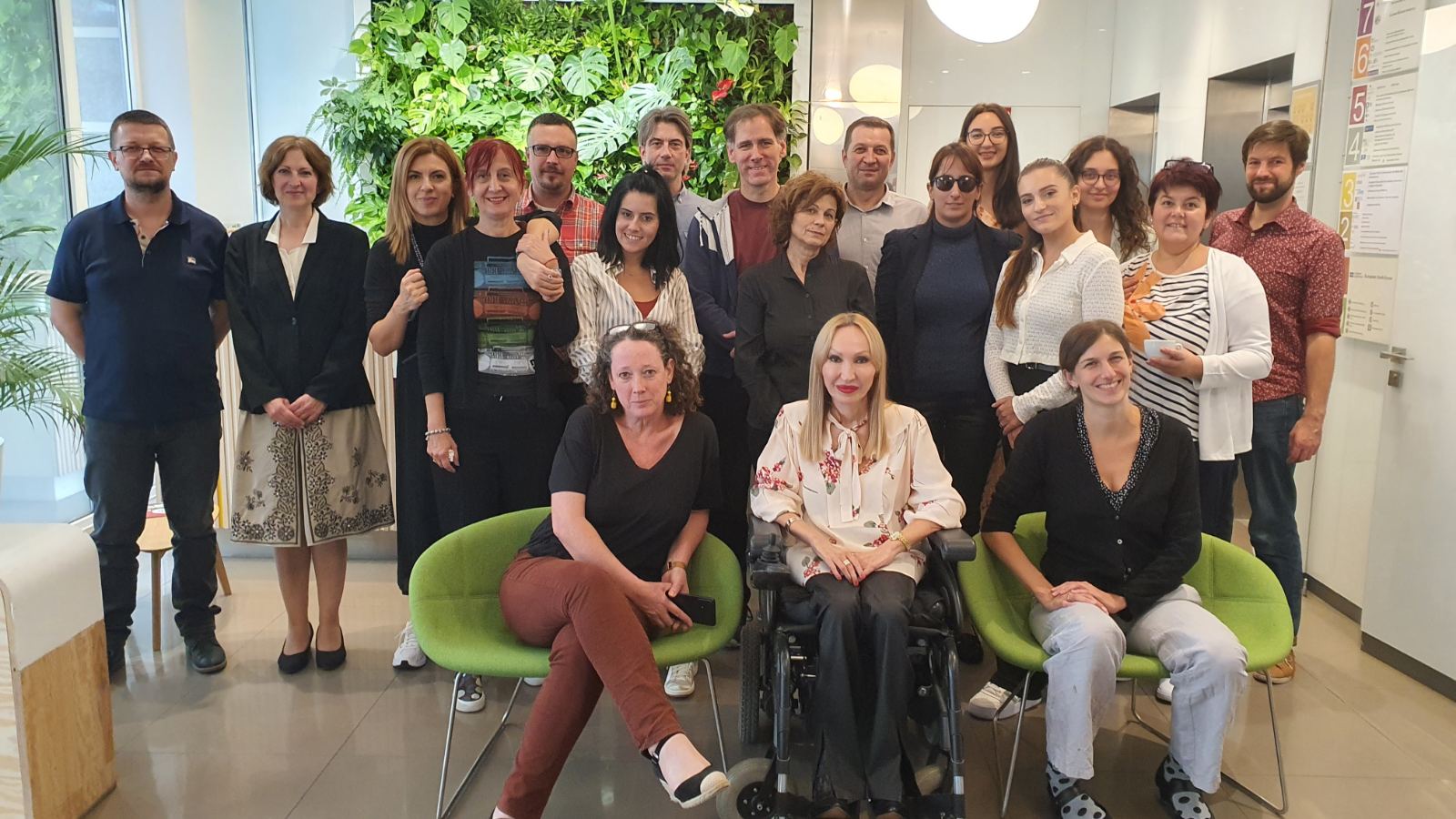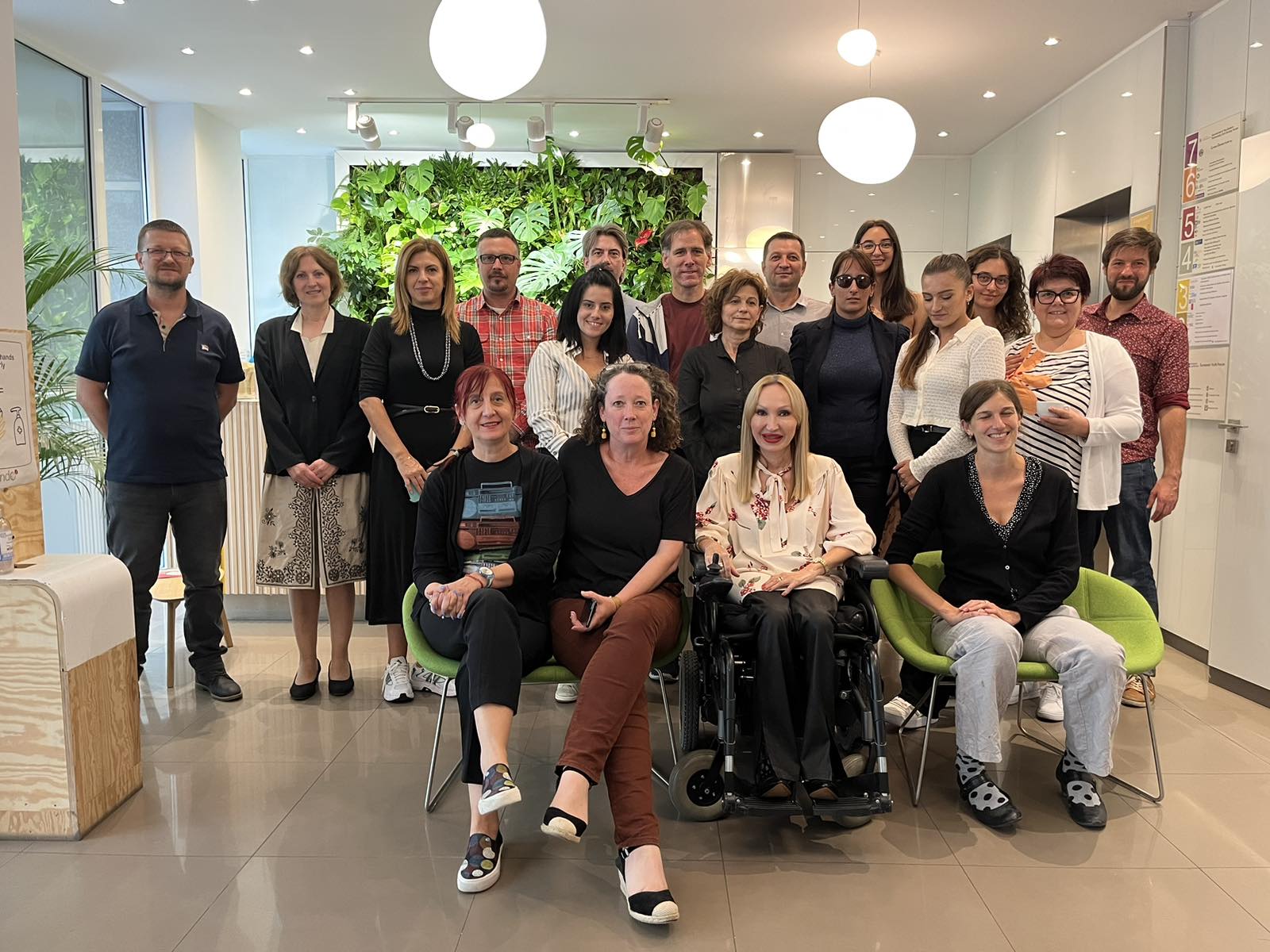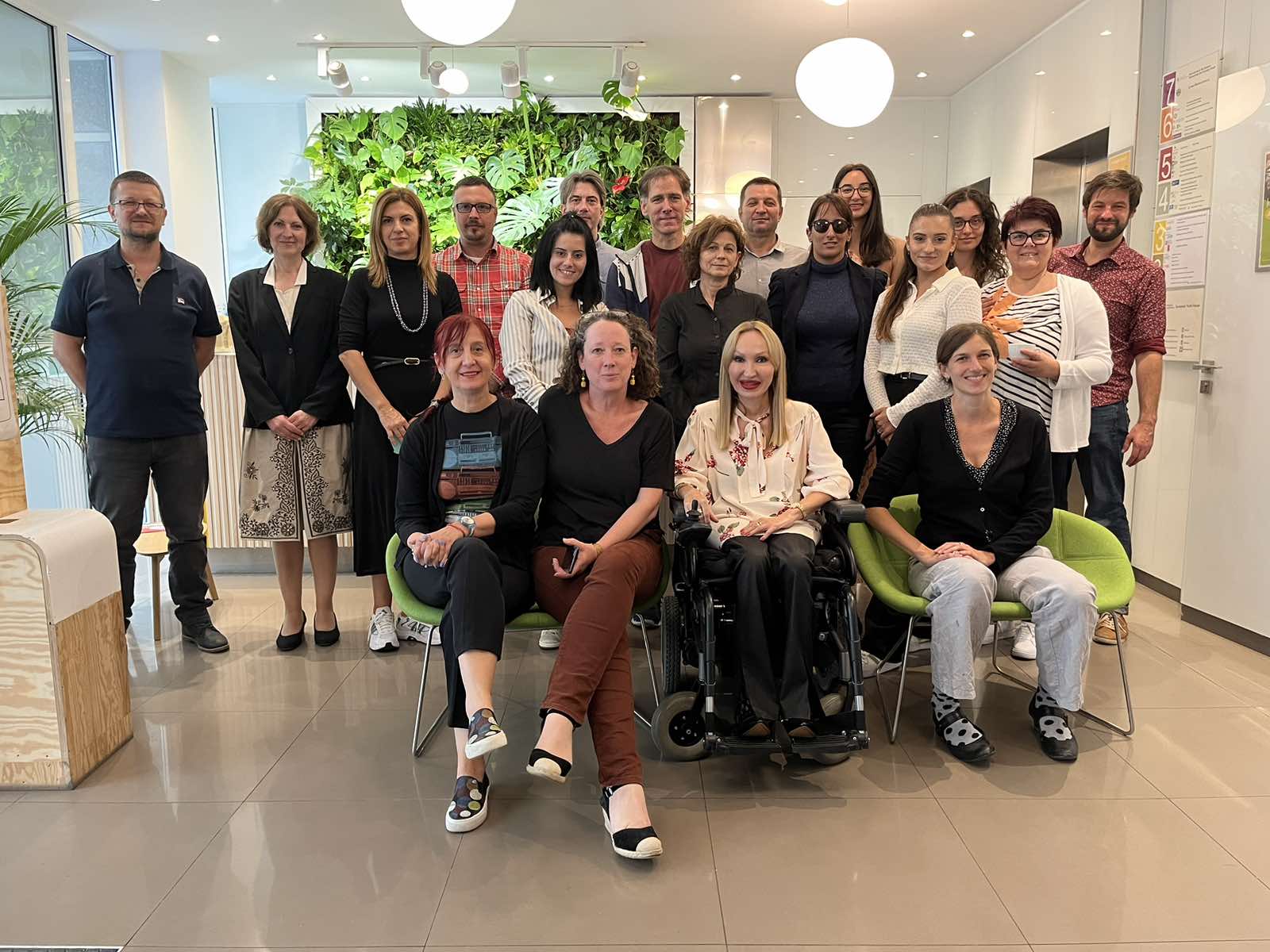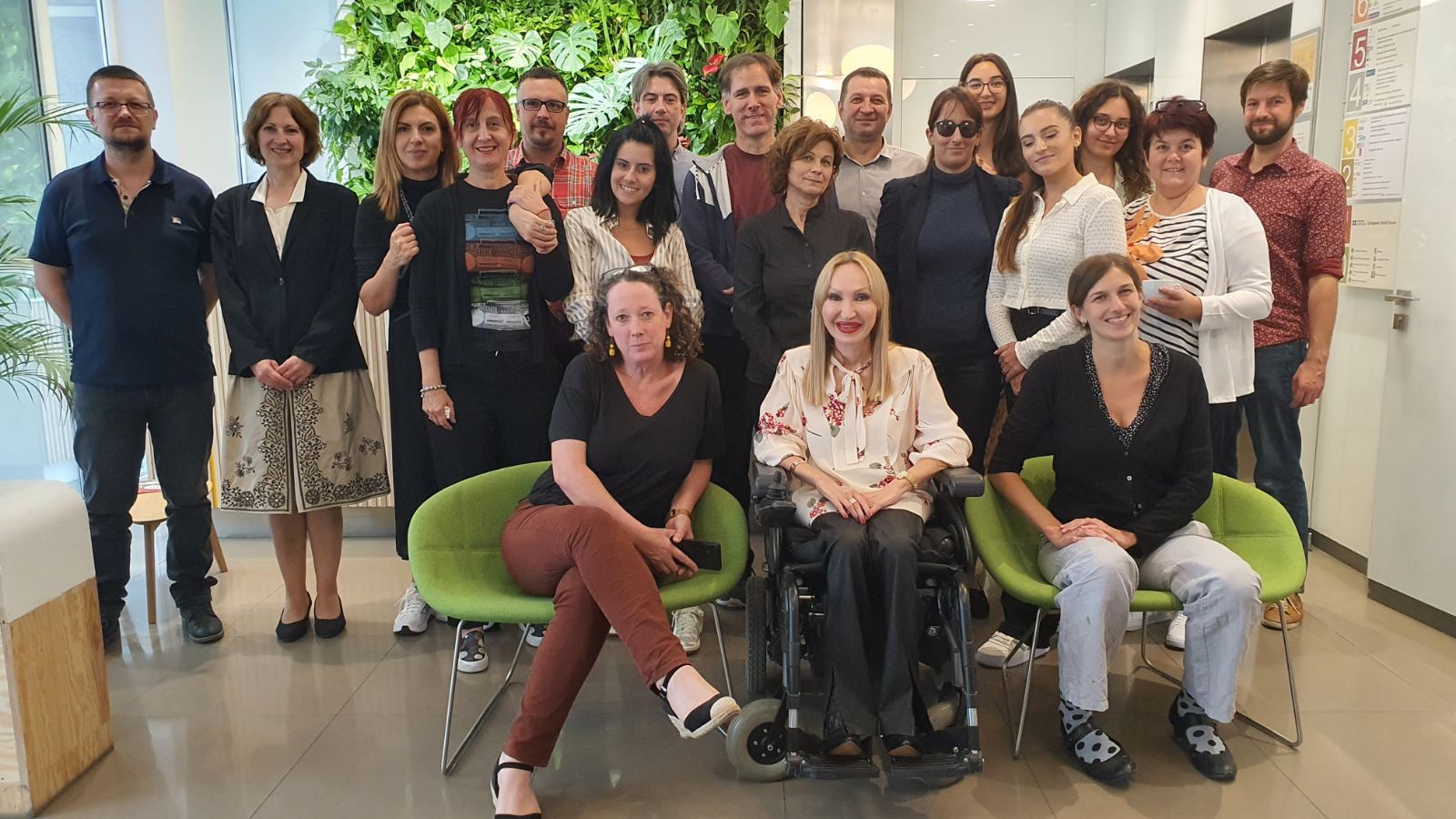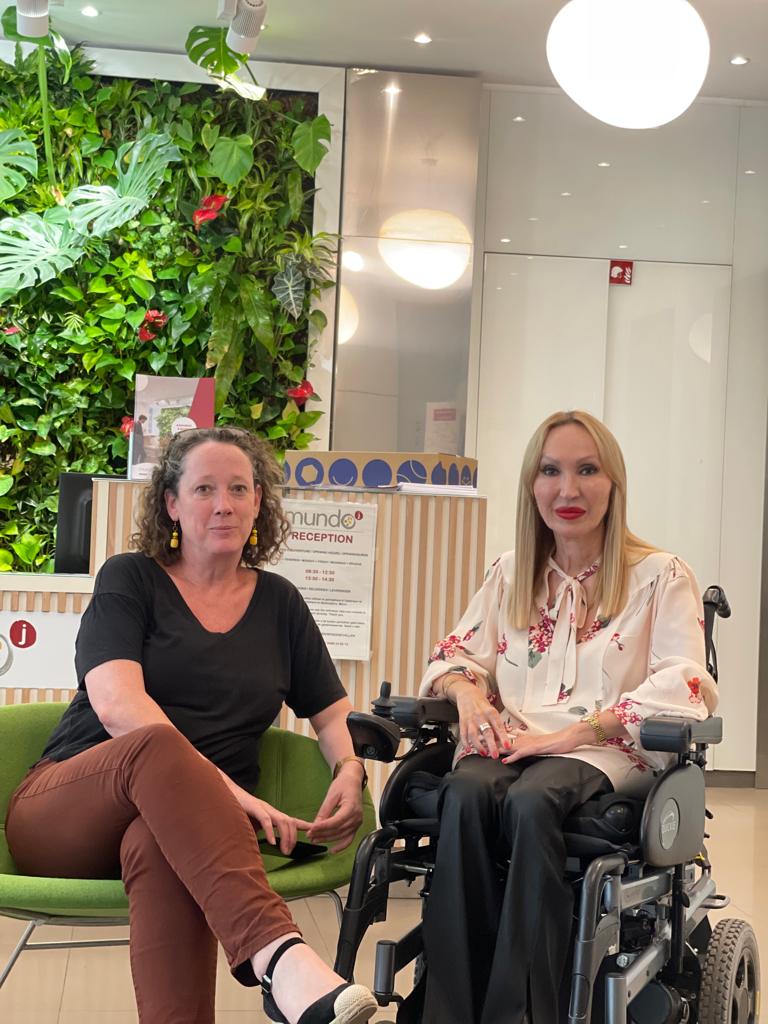Study visit and training
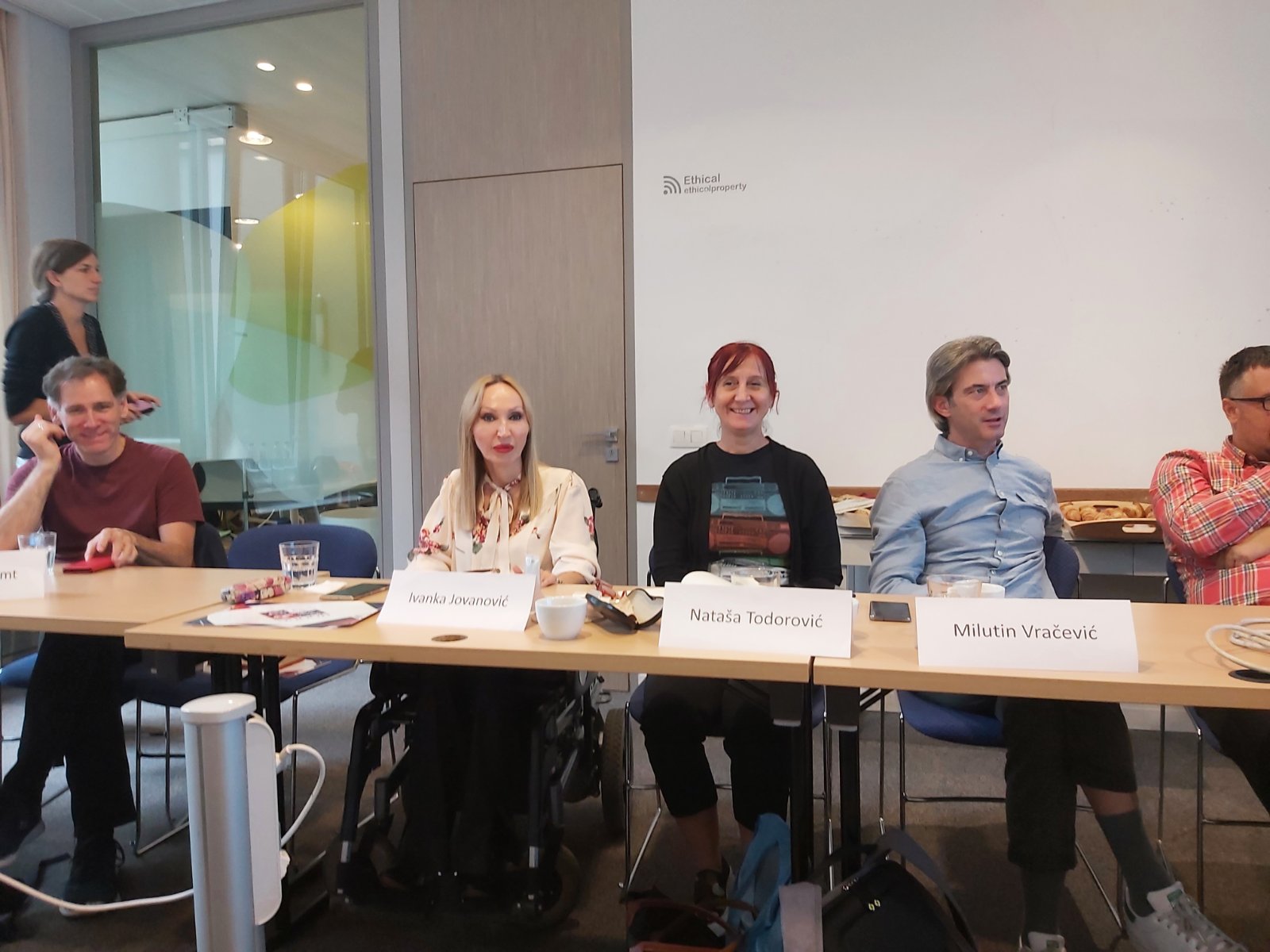
within the project “Strengthening resilience of older persons and persons with disabilities
during the COVID-19 crisis and future crises”
As part of the three-year project “Strengthening resilience of older persons and persons with disabilities during the COVID-19 crisis and future crises”, which is being implemented with the support of the European Union, the Austrian Development Agency and Austrian Red Cross, partners from the Western Balkans region were on a study visit and in training in Brussels, Belgium. These activities were organized on September 19 and 20, 2023.
The representatives of the Red Cross of Serbia Nataša Todorović and Dr Milutin Vračević participated, alongside Tijana Veljković from SeConS and Ivanka Jovanović, president of the National Organization of Persons with Disabilities. In addition to representatives from Serbia, there were representatives of all partners: Austrian Red Cross, Albanian Red Cross, the Red Cross of Montenegro, the Red Cross Society of the Republic of North Macedonia, the Red Cross Society of Bosnia and Herzegovina, the NGO HAJDE, the Union of the Blind of Montenegro, the NGO Humanost and Caritas Kosova. The purpose of this visit was mutual learning, exchange of opinions and, above all, the creation of an advocacy plan for the introduction of long-term care services through familiarization with examples of good practices tried in the European Union.
The main goal of this visit was, first of all, the training of partner organizations under the title “Working with public policy makers and advocating for the change of public policies in the EU accession process”. This training is part of this three-year regional project, in the area of advocacy for changing public policies related to long-term care services, and is a build-up of previous activities that included research, studies and sets of recommendations related to long-term care services in the Western Balkans. The training was led by experts from European networks of civil society organizations that advocate for the rights of the older persons and persons with disabilities: Vera Hoemann and Philippe Seidel Leroy in front of Age Platform Europe and Phillipa Tucker in front of the European Disability Forum
The partners received information about important documents adopted by the European Commission, but also information about their implementation and differences between countries in the European Union. An important aspect of advocacy is the creation of networks and coalitions that will advocate for change, which partners from the region also confirmed, as most partners already have networks and they serve as tools for successful advocacy. Part of the training was about effective communication with decision makers and creating effective strategic plans for public advocacy. An important aspect of the work on the first day of the visit was getting to know concrete decisions and concrete examples of long-term care in the European Union.
Each of the partners presented their advocacy plan developed in line with research that was conducted using the same methodology and that represents the first pioneering attempt in this region to talk about integrated care in the light of demographic aging and demographic resilience based on data.
